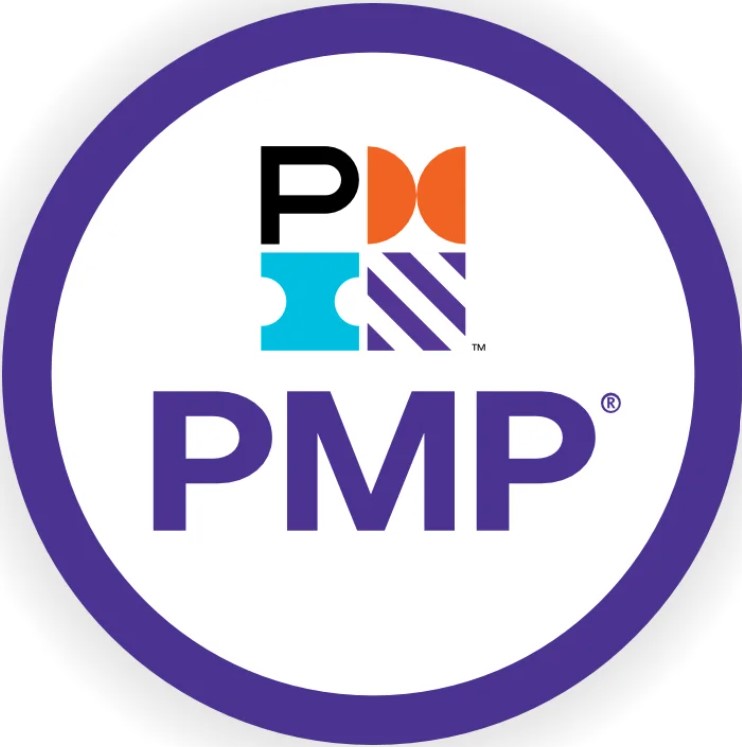PMI Project Management Professional (PMI-PMP): A Comprehensive Guide

Introduction to the Certification
Overview
The Project Management Professional (PMP) certification is one of the most recognized and sought-after credentials in project management worldwide. Administered by the Project Management Institute (PMI), this certification demonstrates a project manager’s knowledge, experience, and skills to lead and direct projects across various industries. The PMP is framework-agnostic, meaning it is applicable to Agile, Waterfall, and hybrid project environments. It’s ideal for experienced project managers looking to boost their credibility and career opportunities.

Key Facts
- Launch Date: The PMP certification was first launched in 1984 and has undergone several updates to remain relevant in the evolving project management landscape.
- Certified Professionals: As of 2023, more than 1 million professionals hold the PMP certification across 214 countries and territories, making it one of the most widely recognized project management credentials globally.
- Notable Contributors: The PMP was developed by PMI, founded in 1969 by five professionals, including James Snyder and Eric Jenett.
Target Audience
The PMP is designed for experienced project managers who:
- Have a proven track record of managing large-scale projects.
- Work in cross-functional teams and in complex environments.
- Are looking to advance into leadership positions or expand their career prospects in project management.
- Professionals looking to manage Agile, Waterfall, or hybrid projects.
Certification Objectives and Learning Outcomes
Core Learning Objectives
The PMP certification is designed to:
- Equip project managers with the knowledge and tools to lead successful projects.
- Teach professionals how to effectively manage project scope, timelines, costs, and risks.
- Develop leadership skills to enhance collaboration and stakeholder engagement.
- Provide in-depth knowledge of project governance, Agile frameworks, and hybrid methodologies.
- Enhance skills in problem-solving, decision-making, and team leadership.
Skills and Knowledge Gained
Upon completing the PMP certification, professionals will have gained:
- Proficiency in Agile and Waterfall methodologies.
- Expertise in handling project risks, resource management, and stakeholder communication.
- Competence in managing the entire project lifecycle from initiation to closure.
- Leadership and team-building skills for leading cross-functional teams.
- Strategic thinking to align project objectives with business goals.

Benefits to Professionals
- Career Advancement: PMP-certified professionals are well-positioned for roles such as Project Director, Program Manager, or Portfolio Manager.
- Higher Salary: According to PMI’s Salary Survey (2022), PMP-certified project managers earn up to 25% higher salaries than non-certified counterparts.
- Global Recognition: With PMP certification, professionals can pursue project management roles across industries such as IT, construction, healthcare, and finance, both in their home country and abroad.
Detailed Breakdown of the Certification Process

Steps to Certification
- Pre-requisites: To be eligible for the Project Management Professional exam, candidates must meet one of the following criteria:
- A four-year degree (bachelor’s or equivalent) along with 36 months of project leadership experience and 35 hours of project management education.
- A high school diploma or associate degree along with 60 months of project management experience and 35 hours of project management education.
Training Requirements
PMI offers PMI Authorized Training Partners (ATPs) that provide PMP exam preparation courses. These include:
- Instructor-led workshops (typically 35 hours).
- Online modules and simulated practice exams.
- Mentoring and study groups to help candidates prepare for the exam.
Exam Format
- Number of Questions: 180 multiple-choice questions.
- Duration: 230 minutes.
- Domains Covered: The PMP exam is divided into three major domains: People (42%), Process (50%), and Business Environment (8%). Agile and hybrid approaches are heavily integrated into the exam content.
- Passing Score: PMI does not disclose a specific passing score but provides feedback based on performance in each domain.
Certification Levels
While PMP is a globally recognized credential, professionals can enhance their careers further by pursuing related certifications such as PMI-ACP (Agile Certified Practitioner) or PgMP (Program Management Professional).
Recertification
PMP certification is valid for three years. To maintain it, certified professionals must earn 60 PDUs (Professional Development Units) through continuing education and contributions to the profession.
Key Benefits of the Certification for Organizations
Impact on Teams and Organizations
PMP-certified professionals help organizations:
- Increase project success rates by applying standardized project management frameworks.
- Improve cost management, timeline adherence, and stakeholder satisfaction.
- Implement Agile and Waterfall methodologies effectively to achieve project goals.
- Develop a strong project governance framework that aligns project objectives with strategic business goals.
Real-World Application
PMP-certified project managers have successfully led projects in companies like Google, IBM, and BMW, where complex, multi-team projects require skilled leadership to maintain focus, timelines, and quality outcomes.
Industry Recognition
PMI’s PMP is recognized by top global companies as a key certification for project leadership roles, ensuring that certified professionals can work across industries such as technology, construction, finance, and healthcare.

Case Studies
At General Electric (GE), implementing PMP-certified project managers led to a 15% increase in on-time project delivery and significant improvements in cost control and stakeholder satisfaction.
Certification Costs and Value Proposition

Cost of Certification
- PMP Exam Fee: For PMI members, the exam fee is $405 USD; for non-members, it is $555 USD.
- Membership Fee: PMI membership costs $129 USD per year and provides various benefits, including discounts on certification fees and access to PMI resources.
- Training Costs: PMP exam prep courses can range from $500 to $2,000 USD, depending on the provider.
Return on Investment (ROI)
PMP certification is a significant investment with high ROI:
- PMP-certified professionals report earning up to 25% more than their non-certified peers, according to PMI’s Salary Survey.
- Certified professionals find themselves in high demand across industries, with many companies prioritizing PMP holders for senior management roles.
Financial Aid and Discounts
PMI offers financial aid for students and group discounts for organizations looking to certify multiple employees.
Comparison with Other Certifications
Competitor Analysis
The PMP certification is often compared with:
- Certified ScrumMaster (CSM) from Scrum Alliance: While CSM focuses solely on Scrum, the PMP offers broader project management knowledge, making it more suitable for framework-agnostic roles.
- PRINCE2: A project management methodology popular in Europe. PRINCE2 focuses on process-driven project management, while PMP integrates leadership, technical, and strategic skills.
Unique Features
- Framework-Agnostic: PMP covers both Agile and traditional project management approaches, making it adaptable to various project environments.
- Leadership Emphasis: PMP places significant focus on people management, which is crucial for project success in complex and dynamic environments.

Industry Trends
As Agile adoption increases in industries like finance and healthcare, PMP-certified professionals are expected to manage hybrid teams that incorporate both Agile and Waterfall methodologies.
Success Stories and Testimonials

Case Studies
At IBM, PMP-certified project managers helped streamline global projects, reducing delivery timelines by 20% while improving team collaboration across remote locations.
At Cognizant, the integration of over 200 PMP-certified project managers led to a 40% improvement in client satisfaction through enhanced project delivery and risk mitigation.
Personal Success
John Anderson, a PMP-certified project manager at Google, shared: « The PMP certification gave me the structure to manage both Agile and traditional teams, improving our project success rates and stakeholder communication. »
Notable Companies
Intel, Microsoft, Amazon, and Deloitte are among the many organizations that prioritize PMP certification when hiring for key project management roles.
The Future of Agile and This Certification
Emerging Trends
With AI, remote work, and Agile at scale becoming more common, PMP-certified professionals are expected to integrate technology-driven project management tools and hybrid methodologies to keep pace with changing business environments.
Future Updates to the Certification
PMI continually updates its exam content. Future updates may include more focus on AI tools for project management, remote team management, and sustainability practices in project execution.
Relevance in a Changing Market
In today’s dynamic and digital-first world, PMP certification remains a cornerstone for project managers aiming to stay relevant by applying a framework-agnostic approach that blends Agile, Waterfall, and hybrid methodologies to drive project success across industries.

Conclusion
The PMI Project Management Professional certification remains one of the most valuable credentials for project managers globally. Its comprehensive approach, encompassing both Agile and Waterfall methodologies, equips professionals with the skills to manage complex, multi-disciplinary projects. The PMP certification not only enhances an individual’s career prospects but also provides organizations with leaders who can drive project success through standardized practices, effective leadership, and strategic alignment with business goals.